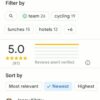Using Mobile Technology in Planning Events Part 2 – Facebook

In my last post on Using Mobile Technology in Planning Events Part 1, I explored the use of Hashtags and Whatsapp, in this post I’ll be exploring Facebook and how you can use it in planning and running your events.
Facebook is now used by half of all online users globally (some 1.49 billion people), with over half of these checking it on a daily basis (bbc.co.uk). If you’re not actively using it in your campaigns, you may be missing a rather large trick.
The developers at Facebook have spent a great deal of time increasing the functionality of the platform since it was launched, adding countless features and add-ons to maximize the user experience. This is great, but which of these should you use when planning and running events?
Deciding upon the type of page
The type of page you decide upon depends upon the type of organization or business you are operating.

If you are a business or charity that relies upon a following in a defined locality, then setting up a Local Business, Cause or Charity Page is arguably essential if you haven’t done so already. It takes very little time or technical knowledge and can be the first step to attracting attention from a local following.
Even if you’re a business, charity or organization is nation or worldwide, having a Facebook page is a good idea because it makes it very easy for people to
Social Proof – telling the world you Like something
According to Al Ries and Jack Trout in their timeless classic, The 22 Immutable Laws of Marketing, social proof is one of the most powerful tools available to any marketer. This is completely logical – if I know that my friend has used a particular service or product and has gone to the trouble of endorsing it publically, I’m going to be far more inclined to trust their judgement, and more likely to explore further.
Within Facebook, this is made incredibly simple with the ‘Like’ function, allowing people to like items in their newsfeed. In addition to this, you’ll often see a Like button on many other websites, allowing people to directly connect to their Facebook account and publicly like items in third-party sites.
Sharing and commenting – the holy grail?
Let us take an example of a photo you have posted on your page that three separate people see in their newsfeed.
Person A decides to click Like, so in a best case scenario, anyone who is following that person may see that their friend has liked the photo in their immediate feed. Anyone who is friends with Person A may also see in their profile that in recent activity, they have Liked the photo.
Person B decides to share the post. Your photo is then shared on their main timeline and on their personal profile. This is a far better outcome as your photo has now potentially reached a great deal of Person B’s friends and your endorsement is now on their personal page.
Person C decides that they like your post and decides to comment on it. They decide that a couple of their friends would particularly enjoy your photo, so tag them in their comment. This is incredibly powerful as it has the same power as a share and reached a great deal of their personal friends, but they’ve also reached out specifically to friends of friends. They have begun a discussion on something you have posted which is gold. It also gives you the opportunity to reply, make your own comments and answer any questions anyone may have, publicly.
In short, sharing and commenting is the ultimate goal, so encourage people to do this. If you want people to share a photo, ask them to in the post, create a call-to-action within your post that is clear and directs people to act. Asking questions is always a good idea because it elicits a response, particularly powerful if you’re looking for these much-desired comments on your post.
Facebook Ads
Having spent a great deal of time and money on various online paid advertising platforms, I think Facebook has a lot going for it for event planners. The average person spends over an hour per day on social media, checking their feeds at various times throughout the day. The main advantage of Facebook paid advertising is that, due to the amount of information that Facebook holds about its’ users, you are able to laser-target your campaigns.
For example, if I was planning a cycling event in Leeds, I could set up an ad campaign in Facebook aimed at men aged between the age of 35-55 in a radius of 20 miles from Leeds city centre.

So in this instance, my potential reach (or the number of people who would see my ad) would be 270,000 people. I could then adjust the parameters accordingly to either niche-down my audience, or make my audience bigger. If I wanted to niche-down, I could consider only targeting people that have ‘Liked’ a particular company, cause or brand. This could be one of your competitors, a brand of clothing, a magazine, whatever really.
In my experience, the most powerful is to target people that are friends of those who have ‘Liked’ your page (this will only work however if you have a reasonable number of Likes on your page to begin with or the audience will be too small).

A word of warning! It is essential to understand who your market is and where they hang out online. With the average Facebook user getting older each year, younger people are now abandoning Facebook in favour of other platforms as they don’t want to share their social media with their parents!
Events
Publishing your event on Facebook is really straightforward and has multiple benefits. Firstly, the event is then visible on one of the most popular social media platforms in the world. If you’ve spent time and money creating a following in the form of Likes or Followers, this social proof is available immediately to anyone who checks out your event in Facebook.
You could even encourage people to share the event and certainly send out a link to all attendees in your signup email.
Conclusion
Facebook was set up to connect people, much like an online equivalent of an event. It can be an extremely effective platform to connect with your followers, clients and prospects, before, during and after your event. It can be a cost-effective or even free means of promoting your event and can increase your client base and promote your brand.
Facebook is continually changing so the above will probably only be relevant for another year. It also only really touches on the power of Facebook as a marketing tool and there are some excellent online articles and videos to expand the core ideas.
The way in which we market our events and brands has changed, we no longer just throw money at some ads on TV or otherwise, we need to build loyalty gradually over time and be creative in the ways in which we engage with our audience. Testimonials and endorsements are more important than ever, so ask your followers to shout about your brand instead of shouting about it yourself. This is far more sustainable in busier and more competitive marketplaces, and will allow your brand to rise above the noise.


